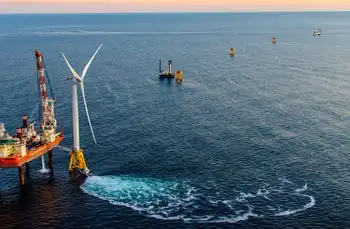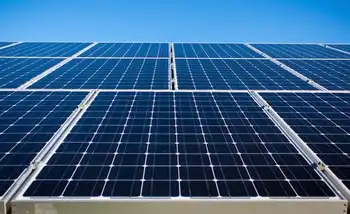German installed PV capacity reaches 10,000 MW
By Industrial Info Resources
Electrical Testing & Commissioning of Power Systems
Our customized live online or in‑person group training can be delivered to your staff at your location.

- Live Online
- 12 hours Instructor-led
- Group Training Available
The magazine conducted the study based on responses from 119 grid operators and solar equipment manufacturers. The photovoltaic generating capacity installed during 2009 is reported to be between 3,000 and 4,000 MW, a much higher figure than the estimate provided by the Germany's Federal Ministry of Environment.
However, the figure is in line with an earlier estimate of 3,850 MW forecast by Photon Consulting. The study indicates that by 2011, electricity production from photovoltaic installations is expected to contribute about 2% to Germany's energy mix.
The report strongly recommends cutbacks on the country's feed-in tariff structure. Germany approved the Renewable Energy Sources Act in 2000, which introduced the concept of feed-in tariffs. Subsequently, the act, which was amended in 2004 and 2008, helped boost the domestic solar and photovoltaic industry. The act requires the grid operator to pay a fixed sum for surplus solar power fed to the national grid. The fixed remuneration varies depending on the size and type of the installation.
The study indicates that since the cost of producing photovoltaic equipment has come down 50%, it is critical to bring down the feed-in tariffs and make this popular renewable energy source an attractive option in the future. Analysts are concerned that if the feed-in tariffs are not revised, the cost of solar power will be considerably and unnaturally higher than other sources, which could hamper the growth of the solar industry.
Despite vociferous campaigns by industry bodies and agencies, only a marginal change in feed-in tariffs is expected in 2010. The previous government indicated a cutback of not more than 9% to 10% per year, which is much lower than the industry prediction of about 30%. After the new government came to power, fears of a hostile policy toward the photovoltaic industry were put to rest. The new administration has been soft-pedaling the issue and has stayed away from major changes.
However, there are reports that the government has pledged to reduce subsidies, which are in the range of 0.25 to 0.43 euros ($0.36 to $0.62) per kilowatt-hour.
From January through September 2009, about 1,500 MW of photovoltaic capacity was connected to the national grid. The German solar energy agency, Bundesverband Solarwirtschaft eV, indicates that despite the economic slowdown, photovoltaic equipment production increased 65% during this time. Sales turnover grew to between 6 billion and 10 billion euros ($8.6 billion and $14.3 billion), with 50% of the revenue coming from exports.
According to a research paper published by EuPD Research, during the next four years Germany is expected to witness investments of about 10 billion euros ($14.3 billion).
Experts indicate that this investment will account for 14% of the annual turnover. By 2013, an estimated 1 billion euros ($1.4 billion) will be spent on research and development. Germany tops the list of solar power producers, followed by Spain, Japan, the U.S., India and China.











